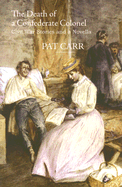Notes: 300 Pulls in $70Mil; An Iraqi Bookseller Remembered
300, the movie based on Frank Miller's graphic novel of the same
title about the Battle of Thermopylae, took in $70 million at the
box office over the weekend "as it surged past hostile critics and
industry expectations," the New York Times reported.
The valiant stand by the movie was all the more inspiring because it
has an R rating and no major stars. As we noted last Tuesday,
Miller and director Zack Snyder have collaborated on 300: The Art of
the Film (Dark Horse, $24.95, 9781593077013/1593077017), which includes
production photos, studio art and more, and the new book Thermopylae:
The Battle That Changed the World by Paul Cartledge (Overlook, $30,
9781585675661/1585675660) covers the same hallowed ground as the movie.
Incidentally on a scale of 1 to 100, 300 got a 300 from the 17-year-old graphic novel fan in our house.
Also over the weekend, The Namesake, based on the Jhumpa Lahiri novel, opened in just six theaters and took in $250,000.
---
The Washington Post's
Anthony Shadid remembers Mohammed Hayawi, owner of the Renaissance
Bookstore in Baghdad, who died in the bombing a week ago on Mutanabi
Street, the city's booksellers row.
Shadid wrote in part: "His quiet life deserves more than a footnote, if
for no other reason than to remember a man who embraced what Baghdad
was and tried to make sense of a country that doesn't make sense
anymore. Gone with him are small moments of life, gentle simply by
virtue of being ordinary, now lost in the rubble strewn along a street
that will never be the same."
---
The Bookworm, Hudson, Mass., has metamorphosized into the Spot and is
no longer a general used bookstore but now sells new and used books
with an emphasis on science fiction, horror, manga, thrillers and
mysteries, according to the Hudson Sun.
Owner Scott Alving said "the Internet has changed all aspects of the
book world. Used books are especially hot and popular online, and it's
difficult to compete with that.''
So he has removed categories like history,
self-help, gardening and romance and devoted space "to host gamers
interested in Magic: The Gathering and classic role-playing games like
Dungeons & Dragons." The fate of the Bookworm's children's section
is undecided.
---
The Wenatchee World profiles A Book For All Seasons,
Leavenworth,
Wash., on the occasion of its 15th birthday, which the store celebrated
Saturday with a signing and workshop with Kelly Lerner (a portion of
her book's sales went to Habitat for Humanity) and children's
activities, which included a contest for the best 15-line poem, to be
published in the store newsletter.
A Book For All Seasons, owned by Pat Rutledge, is underneath the
Innsbrucker Inn, a hotel with six literary-themed rooms such as the
Shakespeare Room and the Sherlock Holmes Room. (Leavenworth is a
Bavarian-themed town.)
"I always said to Ed [my husband], 'I want to be selling books when I'm
85,' " Rutledge told the paper. "Just books and words and print, the
whole culture--it sounds corny, but it's what I love."
---
In an update on A Long Way Gone: Memoirs of a Boy Soldier
by Ishmael Beah, Saturday's New York Times reported that the book had
sold more than 62,000 copies in its first three weeks on sale in
Starbucks, "about two-thirds of the 92,000 copies" that the first of
these Starbucks picks--For One More Day by Mitch Albom--sold in three
months.
Starbucks chairman Howard Schultz told the paper, "The success of the
book, in terms of units sold, is exceeding our expectations." Because A Long Way Gone is by an unknown author and has a "grisly
subject," Starbucks has marketed the title "in an approachable
package, emphasizing the themes of hope and redemption."
---
Some Shanghai bookstore
customers--often students who don't want to buy expensive reference
books--take pictures of pages in books, and booksellers have
a mix of reactions, the Shanghai Daily reported.
A few booksellers have taken a laissez-faire attitude while one put up a sign telling customers not to take pictures.
---
Yesterday's New York Times
business section pointed out a problem with digitization of information
and its widespread availability on the Internet: "As more museums and
archives become digital domains, and as electronic resources become the
main tool for gathering information, items left behind in nondigital
form, scholars and archivists say, are in danger of disappearing from
the collective cultural memory, potentially leaving our historical
fabric riddled with holes."
The overlooked material includes items not easily scannable,
collections without money to be scanned and material whose copyright is
unsecured. Another factor in the problem: more and more researchers
limit their research to the Internet.












 The eight short stories and one novella that comprise The Death of a Confederate Colonel concern people whose lives are changed profoundly by events set against the backdrop of the Civil War. Death is present in each story, sometimes physical death, sometimes the death of dreams or of one's soul. Pat Carr's prose is elegant and spare, as clear and sharp as the icicles that become the nemesis of the woman fetching wood in "The Confederate Wife."
The eight short stories and one novella that comprise The Death of a Confederate Colonel concern people whose lives are changed profoundly by events set against the backdrop of the Civil War. Death is present in each story, sometimes physical death, sometimes the death of dreams or of one's soul. Pat Carr's prose is elegant and spare, as clear and sharp as the icicles that become the nemesis of the woman fetching wood in "The Confederate Wife." 